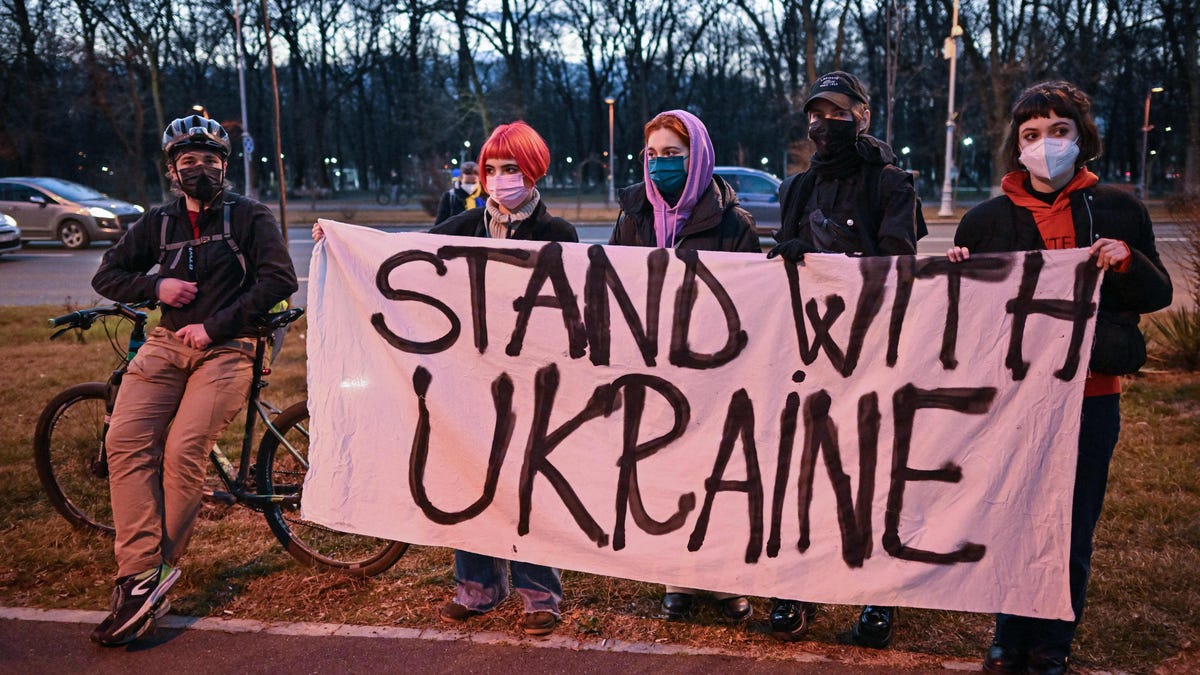What could war in Ukraine mean for European air travel?
Aviation worldwide has achieved unprecedented levels of safety – but prospective travellers may still decide not to commit to flights

Air India flight 131 from Mumbai has just touched down slightly late at London Heathrow. It had begun its flight from the Indian city as Russia moved in on Ukraine.
An aircraft following the most direct flight path from Delhi to London would spend about an hour flying much of the length of Ukraine. Instead, the Boeing 787 stayed at least 200 miles south, traversing Turkey rather than Ukraine and arriving around half-an-hour late at Heathrow.
It will become a familiar picture, after transport secretary Grant Shapps on Thursday banned aircraft flying to or from UK airports from using Ukraine airspace.
However, flights are continuing to operate over Russia, which is a route used by many services between Europe and Asia.
In July 2014, Malaysian Airlines flight MH17 was shot down by a missile launched from an area of Ukraine controlled by pro-Russia separatists, killing all 298 people on board.
Extended flight paths to avoid dangerous airspace and no-fly zones comprise just one aspect of the problems for airlines as a result of the tragedy unfolding in Ukraine.
For the airlines of the UK and the rest of Europe, Vladimir Putin’s military operations against Russia’s neighbour have triggered a wide range of concerns that will hamper any recovery from the coronavirus pandemic.
The attacks ordered by the Kremlin began 31 years to the hour after Operation Desert Storm was launched against Iraq by the US and its allies. At the time, passengers from Australia to the UK found themselves on planes that were diverted as far as Nairobi in Kenya to refuel, rather than go anywhere near the conflict.
As the operation to liberate Kuwait unfolded in February 1991, thousands of passengers failed to show up for booked flights – even if they were merely flying between the UK and Spain.
More seriously for the airlines, prospective travellers stayed away and simply did not book.
When countries close their airspace because of war, businesses order staff not to fly and leisure passengers lose confidence.
At a time when airlines are seeking to persuade travellers that the threat from Covid-19 has abated, confidence is crucial. Plenty of holidaymakers may conclude that committing to a booking for the summer appears reckless.
Added to the likely slump in demand, airlines are facing a surge in costs. The price of oil, which can often make the difference between loss and profit for an airline, spiked on news of the invasion. The spot price for Brent Crude is at its highest level since 2014.
Another price indicator showed the problems facing Europe’s biggest budget airline. On 27 March, Ryanair is due to begin flights between London Stansted and Odessa in southern Ukraine. One-way tickets for the inaugural flight are currently on offer for just £4.99.
The carrier is set to lose a small fortune if the flights actually go ahead, as the fare is only 38 per cent of the Air Passenger Duty that Ryanair must pay. But if links to, from and over Ukraine stay grounded, the losses will prove much greater.
Aviation worldwide has achieved unprecedented levels of safety – but prospective travellers may still decide to remain on the ground.
In the shorter term, Wizz Air has cancelled its flights between Luton and Kiev and Lviv. Ryanair and Ukraine International Airlines (UIA) - the other carriers that fly between the UK and Ukraine - also suspended those routes.
The lack of flights will make it harder for British nationals to evacuate from Ukraine to the UK.

 Fransebas
Fransebas 
































